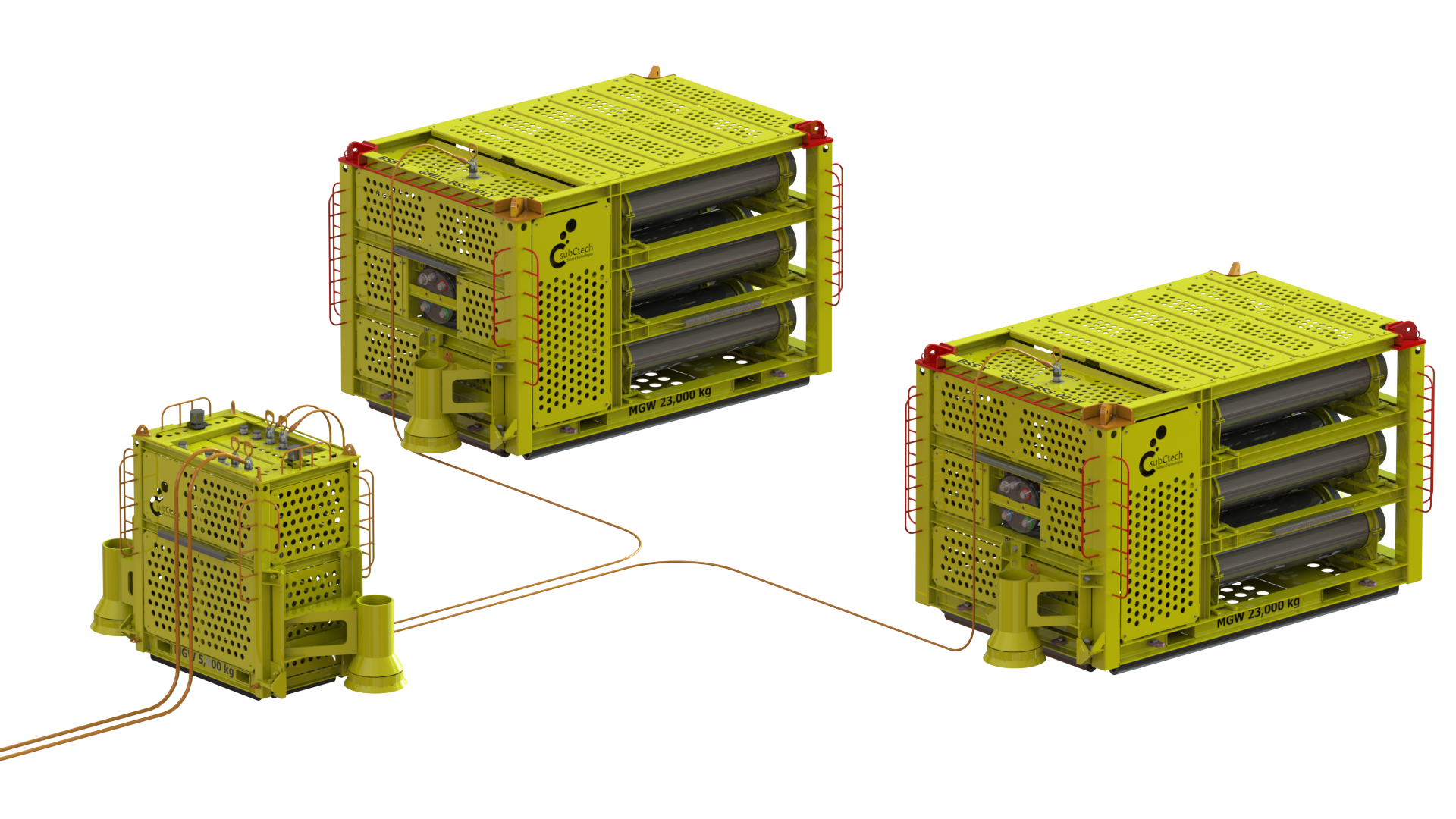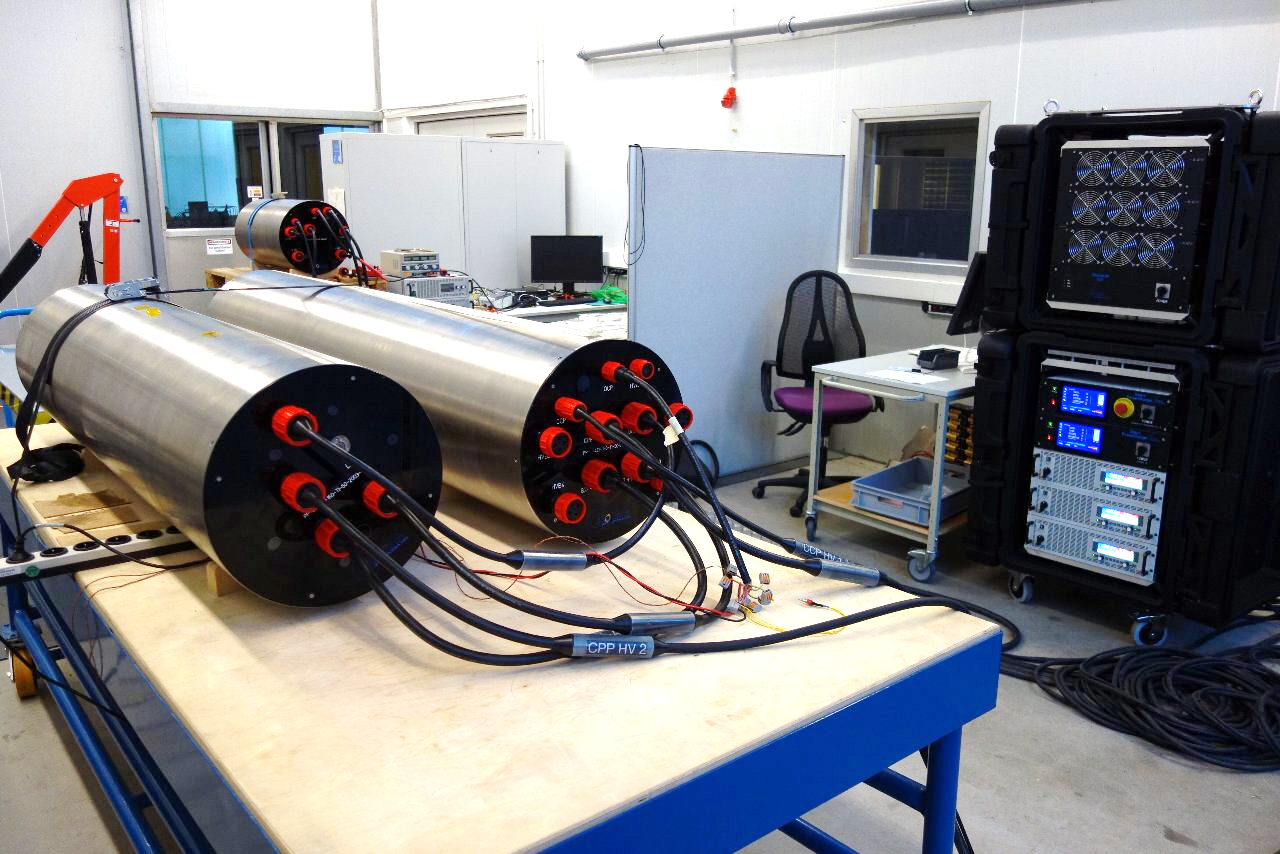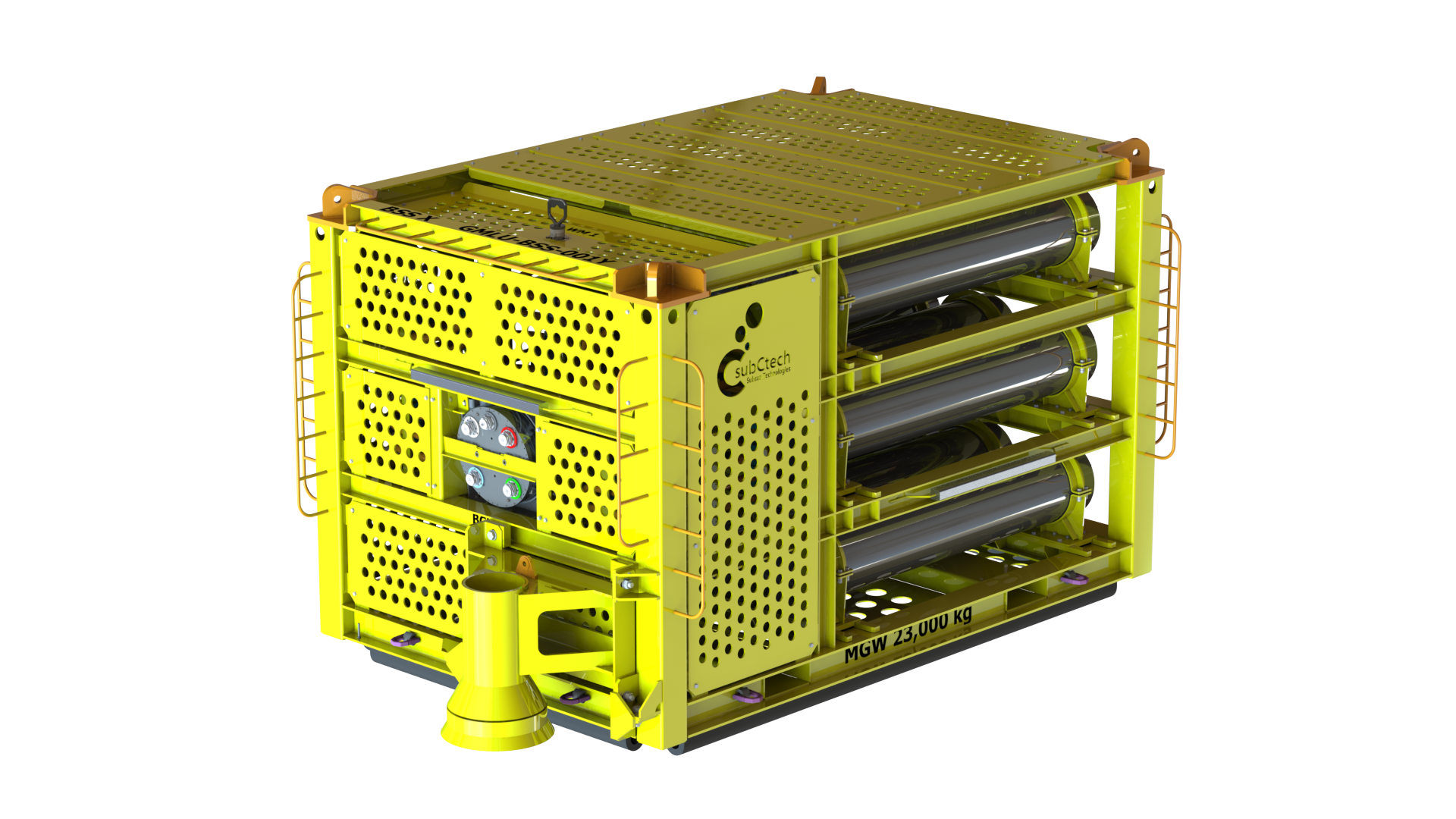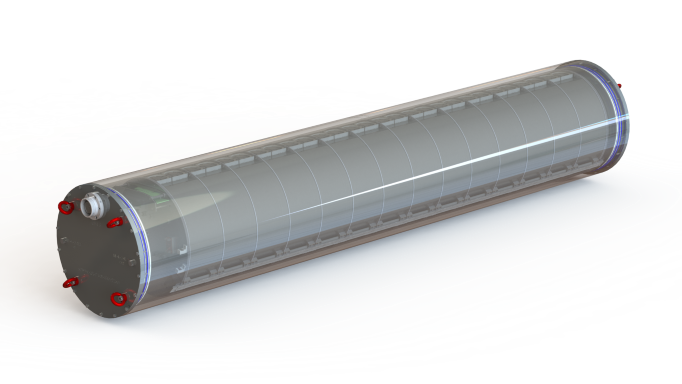
Safe. Reliable. Powerful.

The Future of All-Electric subsea exploration
Subsea Oil and Gas production facilities transition from electrohydraulic to all-electric.
Reasons for that are reduced complexity, reduced power demand, which reduces the umbilical cross section & higher reliability.
As a result, there are significant reduced investment cost APEX and significant reduced service cost OPEX, which is especially important for the future demands in the increasing depth of subsea installations and the possibility of simplified remote control for under-ice fields. Additionally, it is beneficial for retrofitting of shallower wells because it ultimately reduces costs.
Because these existing systems rely on electrical power, a number of challenges must be solved. First issue, existing subsea units cannot deliver the needed power. Second issue, increased reliability and operational security must be guaranteed.
Battery powered subsea UPS systems relieve the umbilical in moments of increased power demand and guarantee safe operation and shut-down in case topside power is lost. Thus, the UPS battery system is one key technology for a successful transition from hydraulic to all electric.
Safe. Reliable. Powerful.
Since the first delivery of a subsea Li-Ion battery in 2006, we have consistently developed safe, reliable and efficient Li-Ion batteries. This includes underwater vehicle batteries e.g. for AUV and ROV, that have been certified according to MIL-STD or DNV GL since 2013. We are a qualified supplier according to API17F or ISO 13628 of Li-Ion batteries to the offshore industry.
We are pursuing the approach of deeper system integration, in which the entire battery system and electronics are integrated together with cylindrical Li-ion cells in a titanium or duplex steel housing (see Figure 1). Round cells can optimally fill the available limited space of pressure vessels. The comparatively small cells offer flexibility in the mechanical arrangement and can be connected in parallel or in series depending on the application. This enables highest flexibility in performance and dimensions, as well as higher energy densities (kg/Wh) compared to other batteries on the market. The large number of individual round cells are connected in a vibration-proof manner using a specially developed process. This is only possible with small 18650 cells and not with larger Li-Pol or pouch cells. The high number of cells are monitored by a sophisticated battery management system (BMS). Depending on the application profile of the battery, cylindrical cells of the same form factor but different chemistry can be used and thus the battery can be optimized for high power, low self-discharge or high capacity.
MODBUS RTU, CAN, CANopen and in future also TCP are used as the data interface. Safe communication channels are implemented for batteries rated with SIL. The new embedded CIM (Customer Interface Module) allows an easy adaptation to the application without having to re-qualify.


Modular Battery Architecture
The recently launched large 416 series supplements the well-known 260 and 310 series for vehicle or storage systems. The number 260, 310 and 416 simply indicates the diameter of the battery without canister / pressure housing. The energy is scalable easily by stacking different numbers of submodules, so called SmartPowerBlocks™. Power electronics for charging, distribution and voltage conversion as well as data monitoring and interface modules can be added to the titanium or super-duplex steel housing completing a battery power system.
Thanks to the flexible concept the 416 series can be scaled in a wide range: Voltages between 14 V and 600 V are offered. Modules can be combined up to 1000 kWh. The batteries are optimized for high power or high capacity.
Systems of up to continuously 38 kW output power at 430 V and an energy of 72 kWh have been already realized inside a pressure vessel of 480 mm diameter, 2000 mm length with a combined weight of approx. 500 kg.
Battery powered subsea charging stations
When re-charging on the seabed, battery storage systems accumulate energy from topside and release it by high-power charging in order to enable a quick turnaround and a higher availability of the AUV or eROV.
We are currently working on the development of docking station technology in industrial projects (JIP) and national funding projects (EU FP7 TRACT pipeline inspection robot; cModem: University Kiel; MAUS underwater vehicle; MiRo-Base eROV with Fraunhofer and others). An embedded AUV charger for 2 x 3 kW 200-400V DC is already commercially available. Even the large storage batteries can be qualified to MIL-STD or API17F.
UPS systems for All-Electric subsea production
Special requirements for offshore Oil and Gas industry have triggered the development of extremely reliable batteries with a lifetime of 25 or even 30 years. With the API17F or ISO 13628-6 standards, batteries have to withstand rapid temperature changes as well as extensive shock and vibration tests. Such qualifications are compulsory for operations in the deep sea, as service or failure would cost millions.
We are present in many communities especially for Li-Ion technologies and underwater applications. Regular meetings and cooperation with leading institutes, manufacturers, users and standardization bodies guarantee the latest information for reliability, security and performance. SubCtech is working on the future revision 5 of the API17F on the subject of fully electric production facilities “All-Electric Systems”.
SubCtech Li-Ion batteries are mainly used as subsea UPS with 24V to 400V worldwide. With the first “real” Subsea-UPS from 2012, SubCtech has a long and successful track record. We are proud to have contributed a Subsea-UPS to the world’s first all-electric Xmas tree K5F from CAMERON for TOTAL right from the start.


Safety of Li-Ion Batteries
Battery cells with our Li-Ion technology offer enormous advantages in terms of energy and power density at moderate costs, but highest safety. However, any Li-Ion or Li-Pol cells are sensitive to overcharging and deep discharging and can be damaged by excessively high currents and temperatures. For safe operation and a long service life, they therefore need appropriate protection.
Their special industrial cells already have several internal safety mechanisms: an overpressure valve, a short-circuit protection, a steel housing and, in the case of the high-energy cells, a special temperature protection jacket around the electrodes. Even if some of these properties can also be found in “no-name cells”, only high-quality industrial cells offer the required failure rates of typically 1 to 10 million, i.e. with a few hundred or even a thousand cells, the risk of failure is extremely low.
Our company’s many years of experience add further levels of safety. The battery is primarily divided into safe modules. These can be scaled up and are monitored and controlled by a high-level controller (BMS).
For safe systems such as vehicles, parallel safety mechanisms and a “safety loop” are used. For high-availability applications such as subsea production, the design is done in such a way that critical states are excluded by design. In the area of functional safety IEC 61508, SubCtech works together with certifications such as TÜV and DNV GL, considering the Norwegian NOG 070 guideline related to safety applications in the Norwegian Petroleum industry.
The predictive monitoring, developed in our battery laboratory with the University of Kiel, reliably supplies the status of the battery pack via robust load measurement. Aging or weakening is reliably detected months in advance.
For the future world market, we see great opportunities for all-electric systems and SubCtech’s Li-Ion Subsea UPS and storage batteries. It’s a safer way to cut costs: Safe. Reliable. Powerful.

